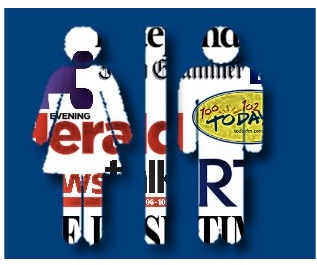[Originally published: April 2, 2015]
An Interview with Gene Kerrigan 
The Irish news industry “strive[s] to establish the important facts in the rapidly changing environment“, it “provide[s] vigilance and challenge to assist understanding.” It is “primarily concerned with serious issues for the benefit of the community throughout the whole of Ireland free from any form of…control“. It has “endeavoured to ensure reporting was accurate and reflected the facts…reflect[ing] all shades of opinion“. And it aspires to “reflect the ever-changing panorama which is human life“.
We know this because a conga line of editors, former editors, CEO’s and directors from Ireland’s most prominent news making institutions recently told us so in evidence presented to the Joint Committee of Inquiry into the Banking Crisis. Any suggestion that this is not the case is a “conspiracy”, peddled by “conspiracy theorists” from “a[n unrecognisable] planet“. And of course, the Irish news industry doesn’t waste it’s time reflecting on the ever-changing panorama of life on other planets.
For a press so concerned with reflecting the world accurately and with account for it’s diversity of opinion, the inquiry was surprisingly interested in just one person, Morgan Kelly. To a visitor from another planet it must have appeared a strange state of affairs, that the credibility of such independently minded institutions, with access to a range and breadth of information and expertise, could be so contingent on the insight of one university professor. The very fact that Kelly’s name is as much a part of the crisis lexicon as NAMA, Anglo and the Troika, is a testament to the industry’s failure.
Continue reading Ireland’s invisible, but omnipresent, right-wing




